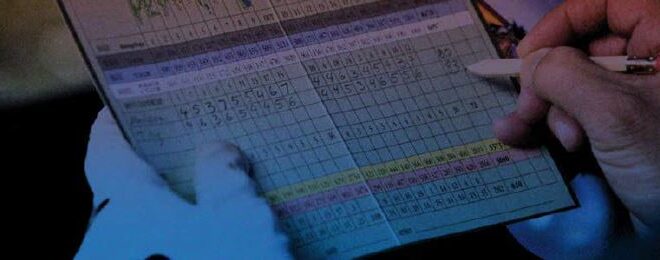Handicap Hints: Exceptional Score Reductions

GLAD YOU HAD A GREAT ROUND, BUT …
Occasionally, everything comes together during a round of golf. Some may remember Bishop Pickering having “the best game of my life” during a serious thunderstorm in the film Caddyshack. I believe Mother Nature won that battle.
The World Handicap System has several checks and balances to make sure that the Handicap Index is representative of a player’s demonstrated ability. One of those measures is the Exceptional Score Reduction procedure, which is part of Rule 5.9 from the Rules of Handicapping.
When a score is submitted, the score differential (which considers the Course Rating, Slope Rating and Playing Conditions Calculation, not just the score itself) is checked to determine if it is significantly better than anticipated by the system. A score differential that is at least 7.0 better than the Handicap Index at the time the round is submitted is considered “exceptional” and results in an automatic reduction to the Handicap Index.
Part of the rationale for a reduction is research showing that someone doing this well is likely to do so again in the future, and this indicates the Handicap Index isn’t reflective of the player’s demonstrated ability. The reduction makes the Handicap Index more statistically accurate. (If you were wondering, there isn’t a Horrific Score Increase procedure for someone who plays very poorly.)
How does the procedure work? The score differential is compared against the Handicap Index to see if it is at least 7.0 lower. Let’s say a player with an 11.7 Handicap Index scored 76 on a tee with a Course Rating of 70.9 and a Slope Rating of 127. The resulting score differential is 4.5, which is 7.2 better than the Handicap Index. Because this meets the exceptional definition, this results in an adjustment to the Handicap.
Index of -1, in addition to the normal calculation of the Handicap Index. Note that not only is the normal calculation likely lowering the Handicap Index, but the Exceptional Score Reduction is as well. Both elements apply.
THE WORLD HANDICAP SYSTEM HAS SEVERAL CHECKS AND BALANCES TO MAKE SURE THAT THE HANDICAP INDEX IS REPRESENTATIVE OF A PLAYER’S DEMONSTRATED ABILITY. ONE OF THOSE MEASURES IS THROUGH THE EXCEPTIONAL SCORE REDUCTION PROCEDURE, WHICH IS PART OF RULE 5.9 FROM THE RULES OF HANDICAPPING.”
How is the -1 reduction applied?
Each of the 20 most recent score differentials are reduced by 1.0.
In our example, the player would have become a 10.8 if there was no reduction, but with the reduction becomes a 9.8.
This reduction does not lock the player at a specific Handicap Index for any length of time. Newly added scores/score differentials after the reduction has been implemented do not have the reduction applied and push out the oldest score differentials, which did have the reduction. Frequency of play works the reduced score differentials out of the scoring record over time.
There has been an exceptional score procedure in handicapping for nearly 30 years, but what existed previously was somewhat more complex. Changes in the World Handicap System result in the following when tied to an Exceptional Score Reduction:
❚ A single score/score differential can cause an Exceptional Score Reduction
❚ Any score can cause an Exceptional Score Reduction (competitive, away, nine-hole scores combined, casual, etc.)
❚ A reduction does not “freeze” the Handicap Index
❚ Scores posted after an Exceptional Score Reduction has been applied are not impacted
There are two additional items to point out:
❚ Exceptional Score Reductions are cumulative, so if a player has another -1 reduction, previously impacted score differentials that are still part of the most recent 20 scores will have been reduced by a total of -2
❚ Besides the 7.0 threshold, there is a second threshold of 10.0. If a player submits a single score that produces a Score Differential of 10.0 strokes or more below their Handicap Index, that will result in a -2 reduction to the 20 most recent score differentials. If the example player referenced earlier was an 11.7 and had a .9 Score Differential, 10.8 better than the Handicap Index, a -2 reduction would apply (in addition to the normal 8 of 20 calculation).
Besides likely noticing the decrease in the Handicap Index, the scoring record will display the letter E for “exceptional,” in the Score column of the score that caused the reduction, and each impacted score differential will have a circle with an exclamation point inside it in the differential column/reference. If one clicks or taps on the circle with an exclamation point, it will explain that an Exceptional Score Reduction has been applied, including the amount.
The Exceptional Score Reduction is a check and balance that helps the credibility of the World Handicap System and the math procedures associated with it. This procedure protects all players in relation to one another and results in a better Handicap Index more indicative of a player’s demonstrated ability.
Enjoy that great round, but recognize that the Handicap Index will decrease more than the normal 8 of 20 calculation.










